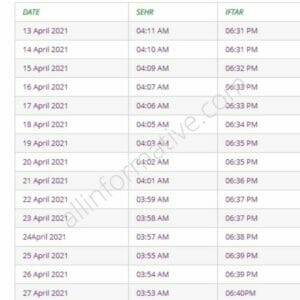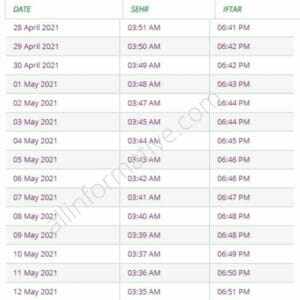During Ramadan, Muslims aim to grow spiritually and become closer to Allah and their loved ones. They do this by fasting and abstaining from pleasures like smoking, drinking and intercourse between sunrise and sunset each day. In this page we tell you when start Ramadan | The Ramadan Timetable and wazaif of Ramzan.
Contents
Ramadan Kareem:
Ramadan is a holy month of fasting, introspection and prayer for Muslims, followers of Islam. It is celebrate as month during which Muhammad received initial revelations of Quran, the holy book for Muslims. Fasting is one of five fundamental principles of Islam.
They are also supposed to avoid impure thoughts and bad behavior. Muslims break their daily fasts by sharing meals with family and friends and end of Ramadan. It is celebrate with three day festival known as Eid al-Fitr, one of Islam’s major holidays. Ramadan always falls on ninth month of 12 month Islamic calendar.
Islam is world’s second largest religion after Christianity. It has more than 1 billion followers. Islam originate in Arabia and spread all over the world. There are an estimated 7 million Muslims in America along with Islamic places of worship called mosques in all 50 states. Fasting is seen as way to cleanse soul and have empathy for those in world who are hungry and less fortunate.
Ramadan is ninth month of 12 month Islamic calendar. A lunar calendar that’s based on phases of moon. The lunar calendar falls short of solar calendar by 11 days. As a result, Ramadan doesn’t start on the same date each year and instead, over time, passes through all seasons. Ramadan is time to practice self restraint and self reflection.
What is Ramadan?
Ramadan is the 9th month in Islamic calendar / Hijri Calendar. The length of the Month varies between 29 and 30 days depending on the sighting of the Shawwal Moon which leads to the much awaited Islamic festival of Eid ul Fitr on the 1st of Shawwal. Ramadan is one of the Five Pillars of Islam and during this holy month, Al-Quran was first revealed to the Prophet Mohammed (S.A.W.). The word ‘Ramadan’ comes from the Arabic world ‘Ramad / Ramida’ which means scorching heat or drought. So the word Ramadan means abstinence from eating and/or drinking anything from dawn till dusk.
Reward of all good deeds are increased by Seventy Times
Salmaan Farsi (R.A.) says that on the last day of Shabaan, Allah’s Messenger (S.A.W.) spoke us and said:
‘O People, there comes to you a great month now, a most blessed month, in which is a night greater in value and goodness than a thousand months. It is a month in which Allah Has made fasting fardh (obligatory) by day and has made Sunnah the Taraweeh Salah by night. Whosoever wants to be close to Allah by doing any good deed, for such person shall be the reward like the one who had performed a fardh in any other time and whoever performs a fardh (obligation), shall be given the reward of seventy faraaidh (obligations) in any other time.’
(Ref: Sahih Ibn Khuzaymah, Hadith No. 1887)
Ensure during fasting
1- Fast during Ramadan with the intention of seeking rewards from Allah.
2- Perform your five prayers on time in congregation (Jamah)
3- Give food to people who are fasting and give a lot of charity
4- If possible, perform Umrah during Ramadan as it is equal to Hajj in reward.
5- Refrain from doing bad deeds such as lying, cursing, backbiting and slandering etc.
6- Increase the time you spend in the remembrance of Allah, seeking forgiveness, asking for paradise and protection from hell
7- Offer voluntary Salah (Nawafil) more. Increase your supplications or duas for yourself, your parents, your children and the Muslim Ummah
Sawm:
Sawm is one of Five Pillars of Islam and Arabic word for ‘fasting’. Although fasting occurs elsewhere in the Islamic calendar, it is primarily associated with month of Ramadan for month long fast. Fasting is key part of Ramadan and all those of able body and sound mind should fast during this Holy time.
Sawm takes place every day from sunrise to sunset and our Ramadan timetable of daylight hours makes it easier to prepare. It is essential to familiarise yourself with fasting times as anyone who is still eating their suhoor at completion of the Fajr is disqualified from that day’s fast.
The sunset and the start of Maghrib prayers mark the end of the day’s fast. It is traditional to break the fast by eating dates, a proven healthy snack, before iftar which is normally eaten with friends and family.
Who is exempted from Fasting:
Even though fasting in Ramadan is obligatory upon every able Muslim, Allah has pardoned and excused certain people from fasting if they are unable to fast during Ramadan due to certain legitimate reasons. In Surah Al-Baqarah (2:185), Allah Has clearly mentioned that sick people and travelers are exempted from fasting during Ramadan. In addition to that, in the light of this Ayah and according to many scholars, following people are also exempt from fasting:
1- Physically or Mentally ill people
2- Travelers
3- Women during menstruation
4- Women who are pregnant or breastfeeding.
5- Elderly People (if fasting will cause their health to deteriorate further)
6- Children who have not reached puberty
Things that invalidate one’s fast are:
1- Medication taken through nose or ears
2- Vomit Intentionally
3- Water accidentally goes down the throat whilst gargling
4- Ejaculating because of contact with a woman
5- Swallowing items
6- Smoking a cigarette
7- Continuing to eat or drink after eating or drinking unintentionally and assuming the fast has already been broken
8- Eating after Suhoor / Subh Sadiq / Sehri (starting time of Fast before Fajr Salah) with the impression of it being before Suhoor / Subh Sadiq
9- Eating Iftar (meal to be consumed after breaking the fast at Maghrib Salah) at the wrong time i.e. eating it before sunset with the assumption that it is after sunset
Eid-al-Fitr:
Eid-al-Fitr meaning ‘Festival of Breaking the Fast’. It is the important holiday that follows month of Ramadan. Celebrated for up to three days, Eid al-Fitr does not begin until sighting of moon.
Although is expected to start on Wednesday 12th May or Thursday 13th May 2021. It is a time for great feasts, giving of gifts to children and spending time with those dearest to you. Check with your local mosque for confirmation of dates and any community activities that are taking place near you.
Zakat-al-Fitr:
Before end of Ramadan and special Eid-al-Fitr prayer, all Muslims should make Zakat-al-Fitr, charitable contribution traditionally of a staple food item. Intended to help those less fortunate to enjoy celebration of Eid-al-Fitr with their friends and loved ones. You can donate Zakat-al-Fitr through Muslim Aid and we will distribute food items to those most in need.
You can donate Zakat-al-Fitr anytime throughout month. However like Zakat, many people choose to make their donation on Laylat al-Qadr which falls in last 10 days of Ramadan. The Night of Power is a special time in which rewards are multiplied. Refer to our Ramadan calendar 2021 to help you plan best time to make your donation.
Ramadan 2021 TimeTable Pakistan:
Ramadan Calendar 2021 timings available on this page with Ramadan Sehr o Iftar timetable:
| Roza | Date | Fajr | Zhuhar | Asar | Magrib | Esha |
| 01 | 13 April 2021 | 04:28 | 12:03 | 15:39 | 18:30 | 19:39 |
| 02 | 14 April 2021 | 04:26 | 12:03 | 15:39 | 18:31 | 19:40 |
| 03 | 15 April 2021 | 04:25 | 12:03 | 15:39 | 18:31 | 19:41 |
| 04 | 16 April 2021 | 04:24 | 12:02 | 15:39 | 18:32 | 19:42 |
| 05 | 17 April 2021 | 04:22 | 12:02 | 15:39 | 18:33 | 19:43 |
| 06 | 18 April 2021 | 04:21 | 12:02 | 15:39 | 18:33 | 19:43 |
| 07 | 19 April 2021 | 04:20 | 12:02 | 15:38 | 18:34 | 19:44 |
| 08 | 20 April 2021 | 04:18 | 12:01 | 15:38 | 18:35 | 19:45 |
| 09 | 21 April 2021 | 04:17 | 12:01 | 15:38 | 18:35 | 19:46 |
| 10 | 22 April 2021 | 04:16 | 12:01 | 15:38 | 18:36 | 19:47 |
| 11 | 23 April 2021 | 04:15 | 12:01 | 15:38 | 18:37 | 19:48 |
| 12 | 24 April 2021 | 04:14 | 12:01 | 15:38 | 18:37 | 19:49 |
| 13 | 25 April 2021 | 04:13 | 12:01 | 15:38 | 18:38 | 19:49 |
| 14 | 26 April 2021 | 04:12 | 12:01 | 15:38 | 18:39 | 19:50 |
| 15 | 27 April 2021 | 04:11 | 12:00 | 15:38 | 18:39 | 19:51 |
| 16 | 28 April 2021 | 04:10 | 12:00 | 15:38 | 18:40 | 19:52 |
| 17 | 29 April 2021 | 04:09 | 12:00 | 15:38 | 18:41 | 19:53 |
| 18 | 30 April 2021 | 04:07 | 12:00 | 15:38 | 18:42 | 19:54 |
| 19 | 02 May 2021 | 04:06 | 12:00 | 15:38 | 18:42 | 19:55 |
| 20 | 03 May 2021 | 04:05 | 12:00 | 15:38 | 18:43 | 19:56 |
| 21 | 04 May 2021 | 04:04 | 11:59 | 15:38 | 18:44 | 19:57 |
| 22 | 05 May 2021 | 04:03 | 11:59 | 15:38 | 18:44 | 19:58 |
| 23 | 06 May 2021 | 04:01 | 11:59 | 15:38 | 18:45 | 19:58 |
| 24 | 07 May 2021 | 04:00 | 11:59 | 15:38 | 18:46 | 19:59 |
| 25 | 08 May 2021 | 03:58 | 11:59 | 15:38 | 18:46 | 20:00 |
| 26 | 09 May 2021 | 03:57 | 11:59 | 15:38 | 18:47 | 20:01 |
| 27 | 10 May 2021 | 03:56 | 11:59 | 15:38 | 18:48 | 20:02 |
| 28 | 11 May 2021 | 03:55 | 11:59 | 15:38 | 18:48 | 20:03 |
| 29 | 12 May 2021 | 03:54 | 11:59 | 15:38 | 18:48 | 20:04 |
| 30 | 13 May 2021 | 03:54 | 11:59 | 15:38 | 18:49 | 20:05 |
Juma ki Fazilat aur Barakat:

A Complete Guide to Fridays Prayers i.e. Salat ul Jumma. Jummah Salah is Fard for Muslims. A Muslim Must not leave the Jummaz namaz for 3 Consecutive weeks.
The Most Honourable Prophet Salla Allahu ta’ala ‘alayhi wa Sallam said: if a man loses three Jumas without any excuse, Allah Subhanahu wa Ta’ala puts a seal in his mind. In another narration : He throws Islam on his back.
There are total 14 Rakats for Jummah Salat or Namaz as divided below
4 SUNNAT, 2 FARZ, 4 SUNNAT, 2 SUNNAT, 2 NAFL
Jumma day is a Blessed Day, a day on which Hazrath Adam alayhis ‘salam was born and so the Blessed day is know as Eid-ul-Momineen. Its a best practice for all Muslim to wish each other and say “Jumma Mubarak” to one another on this is a blessed Day.
Hadiths on Excellence of Jumma Prayer:
1) Hadrat Salman has said:
لا يغتسل رجل يوم الجمعة ، ويتطهر ما استطاع من طهر ، ويدهن من دهنه ، أو يمس من طيب بيته ثم يخرج ، فلا يفرق بين اثنين ، ثم يصلى ما كتب له ، ثم ينصت إذا تكلم الإمام ، إلا غفر له ما بينه وبين الجمعة الأخرى
“If a man takes bath on Friday; purifies himself as much as he can with ablution, applies oil from his oils, or uses any available perfume in his house, then goes out and, without squeezing between two men, prays what is prescribed for him, then remains silent when the Imam speaks (delivers sermon) his (minor) sins between that time and the next Friday will be forgiven.” [Sahih Bukhari]
2) Hadrat Abu Hurairah has said:
إذا كان يوم الجمعة ، وقفت الملائكة على باب المسجد يكتبون الأول فالأول ، ومثل المهجر كمثل الذى يهدى بدنة ، ثم كالذى يهدى بقرة ، ثم كبشا ، ثم دجاجة ، ثم بيضة ، فإذا خرج الإمام طووا صحفهم ، ويستمعون الذكر
“When Friday comes, the angels stand at the door of the mosque recording the people in the order of their arrival. The parable of the first comer is like the parable of one who sends (to Makkah) a she-camel for sacrifice; the man who comes next is like the one who sends a cow for sacrifice, next a sheep, next like the one who sends a hen, next like the one who sends an egg. Then when the Imam stand up (on the Minbar/Pulpit) to deliver the sermon, they close their sheets and listen to the remembrance (sermon).” [Sahih Bukhari]
3) Hadrat Samurah ibn Jundab has said:
من ترك الجمعة من غير عذر فليتصدق بدينار فإن لم يجد فبنصف دينار
“Whosoever omits the Friday prayer without excuse he should give a Dinar in alms; or if he does not have (it), half a Dinar.” [Musnad Imam Ahmad, Vol. 5, Page 632 / Sunan Abi Dawud]
Hadrat Samurah ibn Jundub has said:
احضروا الذكر وادنوا من الإمام فإن الرجل لا يزال يتباعد حتى يؤخر فى الجنة وإن دخلها
“Be present at the sermon (delivered on Fridays) and draw near the Imam; because whoever always keeps far away will likewise, be far away (towards the back) in Paradise, even though he will enter it.” [Sunan Abi Dawud]
4) Hadrat Ibn Umar has said:
إذا نعس أحدكم يوم الجمعة فليتحول من مجلسه ذلك
“When any of you dozes (in the Masjid) during the Friday prayer, he should change his place (if possible).” [Sunan Tirmidhi]
5) Hadrat Anas Radi Allahu Ta’ala Anhu reported that
إذا اشتد البرد بكر بالصلاة ، وإذا اشتد الحر أبرد بالصلاة ، يعنى الجمعة
When it was very cold, the Holy Prophet used to observe the prayer early; and when it was very hot, he used to delay the prayer till it was cooler. This refers to the Friday prayer. [Sahih Bukhari]
Ramadan Celebration:
Ramadan Kareem is also a time to consider those less fortunate. Many Muslims will donate money to charities while others distribute iftar meals to low paid workers and the homeless. It is believe that good deeds done during Ramadan are rewarded many times over.
During Ramadan, it is common for Muslims go to Mosque. They spend several hours praying and studying Quran. In addition to five daily prayers, during Ramadan. Muslims recite special prayer called Taraweeh prayer. The length of this prayer usually 2-3 times as long as daily prayers.
Some Muslims spend entire night in prayer. Some Mosques will attempt to complete one of 30 juz or sections of Quran every evening. The last ten days of Ramadan are seen as most auspicious. It is time of intense worship during perform additional prayers. Some will also perform itikaf, when they stay in mosque for one whole day.
The holiday of Eid-al-Fitr marks end of Ramadan and start of next lunar month, Shawwal. This day is declared when crescent new moon has been sight or if sighting of moon is not possible due to weather. Eid-al-Fitr marks completion of 30 days of fasting. It is celebrate across Islamic world with public holidays lasting for several days.
Islamic Calendar:
The Islamic calendar is based on the moon or Lunar, while the solar calendar is based on the sun or Solar. The solar calendar months are made of 30 or 31 days except for February. The Lunar calendar months are made of 29 or 30 days. Therefore, Ramadan can last for either 29 days or 30 days.
The start and end of month is based on combination of physical sightings of the moon and astronomical calculations. The practice varies from place to place, some places relying heavily on sighting reports and others totally on calculations.
In the United States, most communities follow the decision of the Islamic Society of North America. It accepts bona fide sightings of new moon anywhere in United States as determining start and end of month.
With Islamic lunar calendar, being 11 to 12 days shorter than Gregorian calendar migrates throughout the seasons. The entire cycle takes around 35 years. In this way, length of day and thus fasting period, varies in length from place to place over the years. Every Muslim, no matter where he or she lives will see an average Ramadan day of approximately 13.5 hours.
Hadith of Intention:
Umar Ibn Al-Khattab relates that he heard the Messenger of God صلى الله عليه و سلم say : “Actions are but by intention and every man shall have but that which he intended. Thus he whose migration was for Allah and His messenger, his migration was for Allah and His messenger, and he whose migration was to achieve some worldly benefit or to take some woman in marriage, his migration was for that for which he migrated”. Related by Bukhari and Muslim:
This is an extremely comprehensive and rich Hadith of the Prophet صلى الله عليه و سلم that reflects the core of the Islamic Faith.
Imam Bukhari selected the first hadith, ‘Innamal a’malu binniyat’ of Sahih Bukhari as an introduction to the whole collection to show the sincerity of purpose of the author. It reminds the reader that good and noble deeds inculcated by the Hadith found therein will only bear fruit if there is sincerity attached to their intentions and would be meaningless if the motive is not sincere.
Ramadan in More Countries:
The date of Ramadan in Gregorian calendar moves forward about 11 days each year due to different lengths of Islamic and Gregorian years. It is during month of Ramadan that Muslims fast. The Fast of Ramadan lasts entire month which can 29 or 30 days depending on sightings of moon.
Ramadan is a time when Muslims concentrate on their faith and spend less time on the concerns of their everyday lives. It is a time of worship and contemplation. During Fast of Ramadan strict restraints are placed on daily lives of Muslims. They are not allow to eat or drink during the daylight hours.
There are some exemptions to fasting for health reasons. Pregnant, breastfeeding and menstruating women are exempt from fast. The ill, children and elderly are also not required to participate. We give here some Others more countries where Muslims live and celebrate Muslims Events:
-
Pakistan
-
China
-
Turkey
-
Germany
-
Indonesia
-
Australia
-
Canada
-
Italy
-
Spain
-
United Arab Emirates
-
Bangladesh
-
Japan
-
Russian Federation
-
Saudi Arabia
-
South Africa
-
United Kingdom
-
France
-
India
-
Malaysia
-
United States
FIVE PILLARS OF ISLAM:
There are five pillars of islam. These guidelines are fundamental to the lives of Muslims.
Sawm:
Fasting from dawn until dusk during Ramadan.
Shahadah:
Believing there is no deity but God and prophet Mohammad (peace be upon him) as his messenger
Zakat:
Giving to charity
Salah:
Praying five times a day
Hajj:
Making the pilgrimage to Mecca at least once if able.
Conclusion:
Ramadan also spelled Ramazan, Ramzan, Ramadhan or Ramathan. It is ninth month of Islamic calendar. It observed as month of fasting, prayer, reflection and community. Commemoration of Muhammad’s first revelation, annual observance of Ramadan is regarded as one of Five Pillars of Islam and lasts twenty nine to thirty days from one sighting of crescent moon to next. The spiritual rewards of fasting are believe to be multiple during Ramadan.



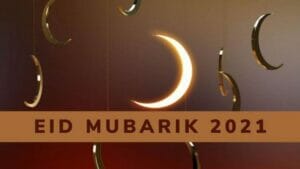



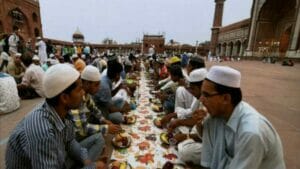
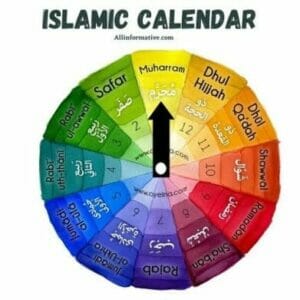


 Pakistan
Pakistan China
China Turkey
Turkey Germany
Germany Indonesia
Indonesia Australia
Australia Canada
Canada Italy
Italy Spain
Spain United Arab Emirates
United Arab Emirates Bangladesh
Bangladesh Japan
Japan Russian Federation
Russian Federation Saudi Arabia
Saudi Arabia South Africa
South Africa United Kingdom
United Kingdom France
France India
India Malaysia
Malaysia